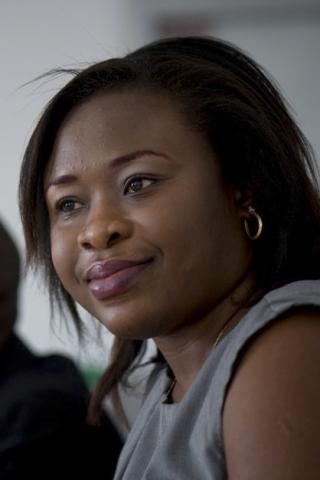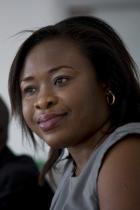Ngungua Sangua Gisèle

Democratic Republic Of Congo, 2011
Coordinator, Action Large des Femmes Advocates
Ngungua Gisèle Sangua says, “Anyone can be a human rights activist. It’s not necessary to be a judge or lawyer.” Gisele started her career in human rights as a volunteer at a women’s organization when she was 17. While later working as a journalist, her interest in human rights intensified. She recalls, “The injustice that I saw made me want to be a voice for the voiceless. I hoped to change the injustice.”
After completing law school, Gisèle attended a human rights training in Cameroon, an event that would define her future involvement in human rights. “During the conference,” she says, “it was suggested that women lawyers were needed to address the situation of women. So we decided to create a group of women lawyers.” She helped establish the association of women lawyers association known as Action Large des Femmes Avocates (ALFA), where she now serves as coordinator. The nine staff members of ALFA provide legal representation and advocacy for women affected by discrimination and sexual and domestic violence.
Gisèle also hopes to fight against the negative clichés and images associated with Africa. “Human rights,” she says, “means living simply together in diversity. It doesn’t mean imposing on others a certain way of life but rather enhancing an exchange of cultures and customs within international agreement.”






